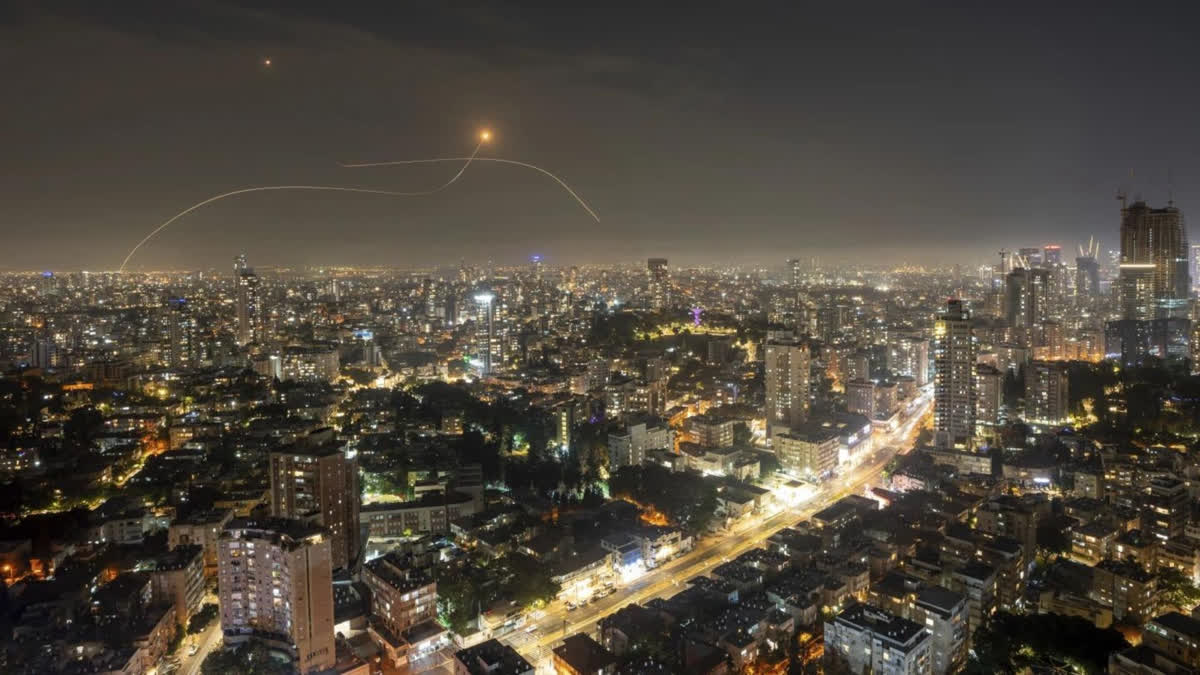Jerusalem : Israel stepped up its ground offensive in Gaza Strip, ignoring the United Nations General Assembly resolution for humanitarian truce leading to cessation of hostilities in Israel-Hamas conflict. Prime Minister Benjamin Netanyahu called it a war for Israel's existence, and said Never again is now.
Gaza residents described the massive bombardment from the land, air and sea as the most intense of the 3-week-old Israel-Hamas war. Other countries, United Nations officials and aid agencies described a dire situation in Gaza, where 2.3 million people are cut off from the outside world and ambulances without cellphone or radio service chase the sound of artillery to locate the wounded.
The Palestinian death toll passed 7,700, most of them women and children, according to the Health Ministry in Hamas-ruled Gaza. In the occupied West Bank, more than 110 Palestinians have been killed in violence and Israeli raids.
More than 1,400 people were slain in Israel during a surprise incursion by Hamas militants, including at least 310 soldiers, according to the Israeli government. At least 229 hostages were taken into Gaza, and four hostages have been released.
Currently, spider web of Hamas tunnels raises risks for Israeli ground offensive in Gaza Strip. Mass graves, unclaimed bodies and overcrowded cemeteries replace funeral rites. There are scenes of sorrow and despair on both sides of Israel-Gaza border on week 3 of war. Jewish and Muslim chaplains navigate tensions on US college campuses. UN General Assembly calls for `humanitarian truce' in Gaza leading to halt in Israel-Hamas fighting.
Also Read : Why India's abstention from UN vote on Gaza truce won't affect ties with West Asia
Here's what is happening in the latest Israel-Hamas war:
Hamas's top leader in Gaza Yehiyeh Sinwar said the Palestinian militant groups are ready to release Israeli hostages in return for Palestinian prisoners in Israel's jails. We are ready immediately to have an exchange deal that includes releasing all prisoners in the prisons of the Zionist occupation enemy in return for the release of all prisoners held by the resistance, he said in a comment posted Saturday evening on Hamas media groups.
The Israeli military spokesman, Rear Adm. Daniel Hagari, dismissed the offer as psychological terror and said Israel is working on multiple channels to free the hostages.
ISRAEL SAYS ITS WARPLANES HIT 150 UNDERGROUND TARGETS
One of the biggest threats to both Israeli troops and the 2.3 million Palestinians trapped in the Gaza Strip is buried deep underground. Israel's military said Saturday that its warplanes struck 150 underground Hamas targets in northern Gaza, including tunnels, combat spaces and other infrastructure.
But the extensive labyrinth of tunnels built by Hamas is believed to stretch for hundreds of miles (kilometers), hiding fighters, an arsenal of rockets and now more than 200 Israeli hostages.
Clearing and collapsing those tunnels is crucial to dismantling Hamas. But Israeli's military could be at a serious disadvantage underground. Urban warfare experts say the militants can be hiding in millions of places, choosing when and where to ambush their enemies. Former Israeli soldier Ariel Bernstein described urban combat in northern Gaza as a mix of ambushes, traps, hideouts and snipers in tunnels so disorienting that it was like he was fighting ghosts.



